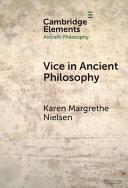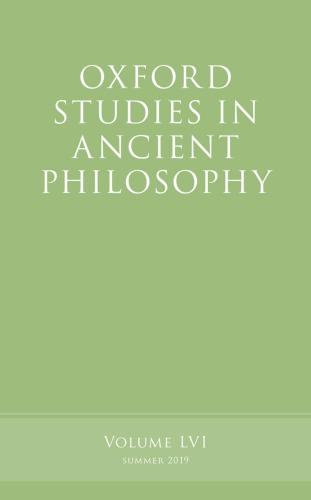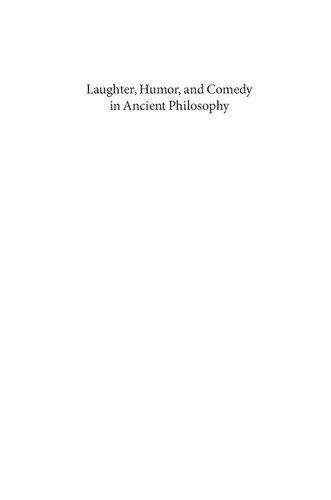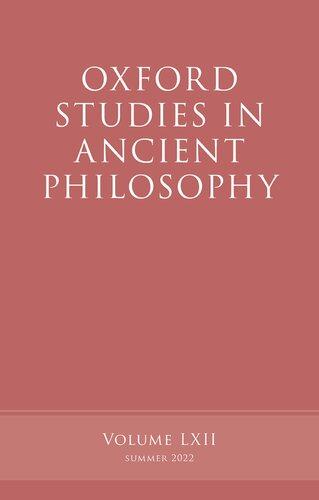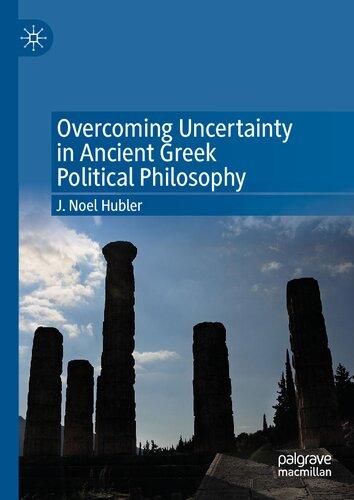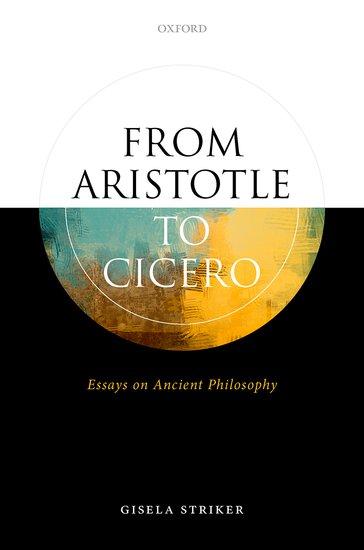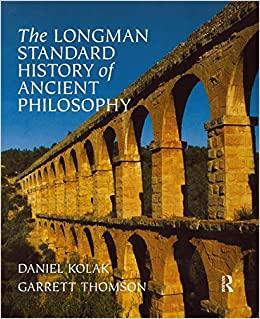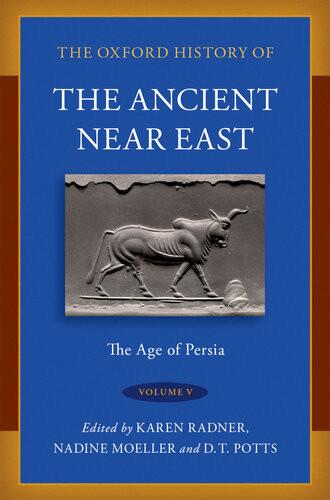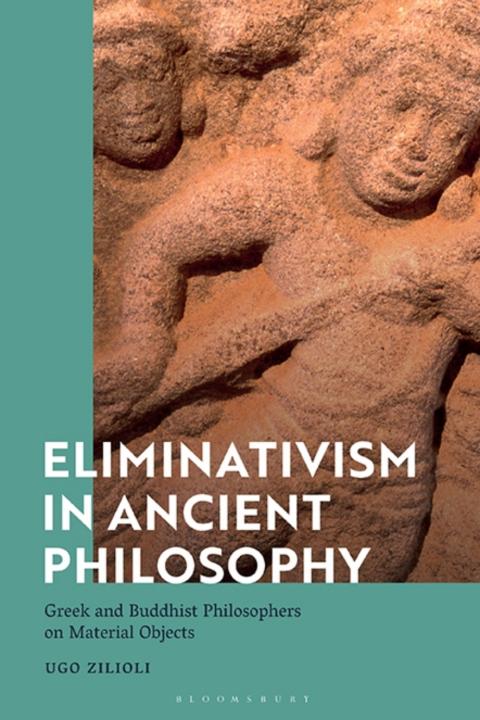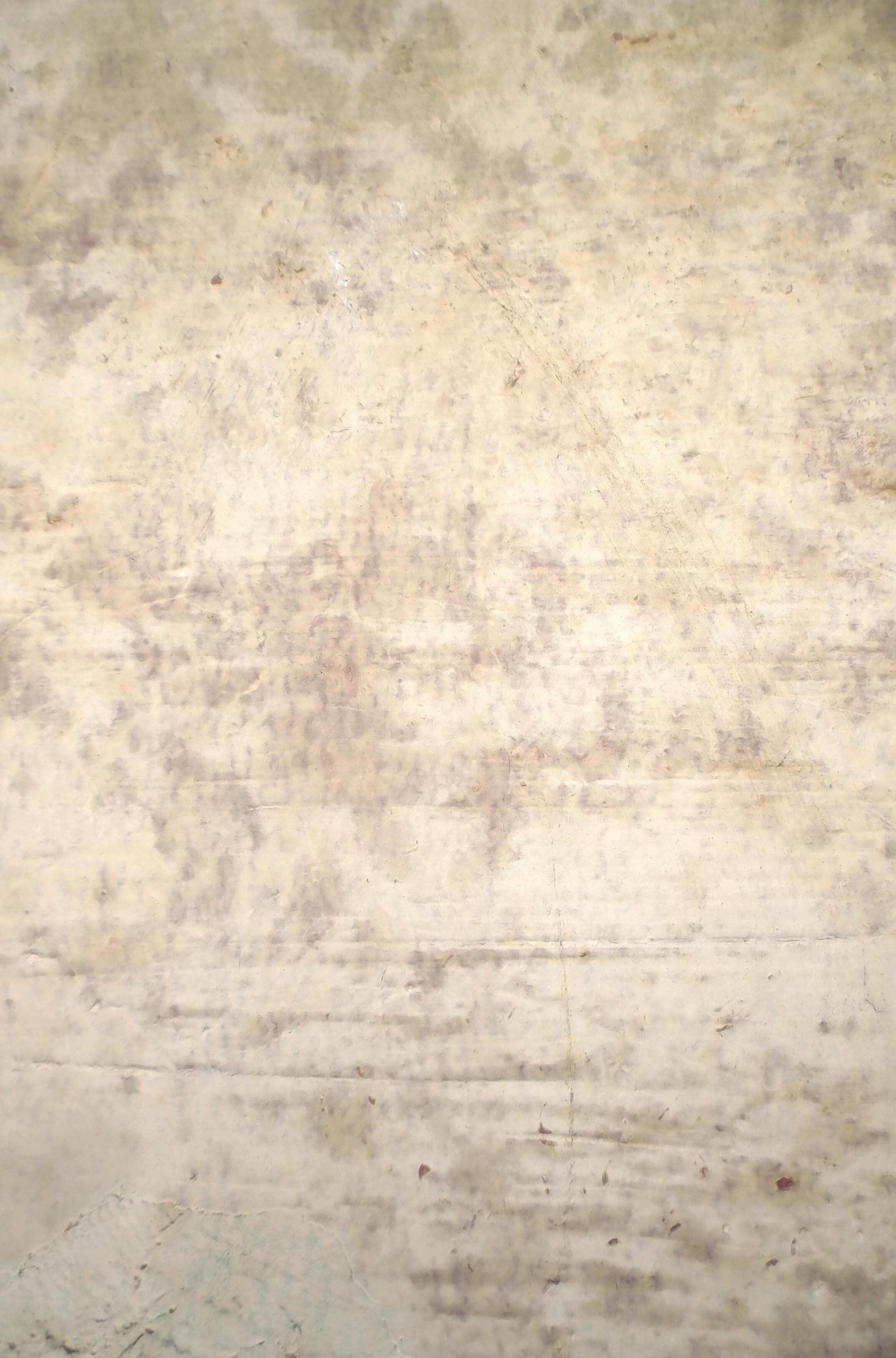PHILOSOPHY
PlatoandAristotleonMoral IgnoranceandCorruption ofCharacter
KarenMargretheNielsen UniversityofOxford
ShaftesburyRoad,CambridgeCB28EA,UnitedKingdom OneLibertyPlaza,20thFloor,NewYork,NY10006,USA 477WilliamstownRoad,PortMelbourne,VIC3207,Australia
314–321,3rdFloor,Plot3,SplendorForum,JasolaDistrictCentre, NewDelhi – 110025,India
103PenangRoad,#05–06/07,VisioncrestCommercial,Singapore238467
CambridgeUniversityPressispartofCambridgeUniversityPress&Assessment, adepartmentoftheUniversityofCambridge.
WesharetheUniversity’smissiontocontributetosocietythroughthepursuitof education,learningandresearchatthehighestinternationallevelsofexcellence.
www.cambridge.org Informationonthistitle: www.cambridge.org/9781009468039
DOI: 10.1017/9781108581738
©KarenMargretheNielsen2023
Thispublicationisincopyright.Subjecttostatutoryexceptionandtotheprovisions ofrelevantcollectivelicensingagreements,noreproductionofanypartmaytake placewithoutthewrittenpermissionofCambridgeUniversityPress&Assessment.
Whencitingthiswork,pleaseincludeareferencetotheDOI 10.1017/9781108581738
Firstpublished2023
AcataloguerecordforthispublicationisavailablefromtheBritishLibrary.
ISBN978-1-009-46803-9Hardback
ISBN978-1-108-71343-6Paperback
ISSN2631-4118(online)
ISSN2631-410X(print)
CambridgeUniversityPress&Assessmenthasnoresponsibilityforthepersistence oraccuracyofURLsforexternalorthird-partyinternetwebsitesreferredtointhis publicationanddoesnotguaranteethatanycontentonsuchwebsitesis,orwill remain,accurateorappropriate.
PlatoandAristotleonMoralIgnoranceandCorruption ofCharacter
ElementsinAncientPhilosophy
DOI:10.1017/9781108581738
Firstpublishedonline:December2023
KarenMargretheNielsen UniversityofOxford
Authorforcorrespondence: KarenMargretheNielsen, karen.nielsen@philosophy.ox.ac.uk
Abstract: Ancientphilosophersofferintriguingaccountsof vice – virtue’sbadtwin.ThisElementconsidersinjusticeandlawlessness inPlatoandAristotle.StartingwithSocrates’ paradoxicalclaimthat ‘tyrantsandoratorsdojustaboutnothingtheywanttodo’ (Gorgias 466d–e),itexaminesdiscussionsofmoralignoranceandcorruptionof characterinPlato’ s Republic andAristotle’ s NicomacheanEthics. Aristotle’saccountofviceisindebtedtoPlato’s.Buthisclaimshave confoundedcritics.Whyistheviciousagentfullofregretswhenheacts inaccordancewithhiswish?Towhatextentisviceaformofmoral ignorance?Whywilltheunjustmannevergetwhathewants?These andotherquestionsyieldnewinsightsintoancientGreekethicsand moralpsychology,aswellassurprisingperspectiveson contemporarydebates.
Keywords: vice,Plato,Aristotle,injustice,lawlessness
©KarenMargretheNielsen2023
ISBNs:9781009468039(HB),9781108713436(PB),9781108581738(OC)
ISSNs:2631-4118(online),2631-410X(print)
1.1WantingtheGood
InPlato’s Gorgias,ayoungcoltnamedPolusstartlesSocratesbydeclaringthat tyrantsandoratorshavethegreatestpowerinthecity,sincethey ‘puttodeath anyonetheywant,andconfiscatethepropertyofanyonetheysee fitandbanish themfromtheircities’ (Gorgias 466b).Polus’ teacherGorgiashaspersuadedhim thatthegreatestgoodforhumankindis ‘theabilitytopersuadebyspeechesjudges inalawcourt,councillorsinacouncilmeeting,andassemblymeninanassembly orinanyotherpoliticalgatheringthatmighttakeplace’ (Gorg.452d).Withthis ability,Gorgias’ studentswillmakeallmentheirslaves,includingfreecitizensin democraticassembliesandlawcourts.Theexpertiseofjudges,councillors,or assemblymenisnomatchfortheorator’sart.Byhookorbycrook,theoratorcan persuadejustaboutanyoneofjustaboutanything.TheimpressionablePolusis already on thehook,forlikeotherAthenianyoungmenfromaristocraticfamilies, hehasbeenpersuadedtospendconsiderablesumsonfeestolearntheartof publicspeakingfromGorgias.1 Now,PoluswantstoconvinceSocratesthat rhetoricgrantstheoratoranenviablepower.Tobepowerfulistoliveyourlife accordingtoyourownwishes,doingasyousee fit,withoutbeingconstrained. Oratoryistheartthatsecuresthisfreedom,andpoliticalpowertoboot.The successfuloratorwillnotjustbe like atyrant:ifallgoeswell,hewillbecome atyrant.ItseemsthatGorgiashasbrokeninhisyoungstudentsuccessfully.2 Polus’ paeantothetyrant’slifesetsoffadétentewithSocratesoverthenature ofpowerandexpertise.Socratesseekstoestablishaconnectionbetweenexpertiseandthegood:onlysomeonewhoknowswhattowantwillgetwhathewants. Oratorsandtyrantsconfuseexpertiseingettingyourheart’sdesirewithexpertise inknowingwhattodesire.AsSocratesremarkstoMeno,anotherambitious youngmanwhohasstudiedwithGorgias, ‘whatelseismiserythandesiringbad thingsandsecuringthem?’ (Meno 78a).AccordingtoSocrates, ‘oratorsand tyrantshavetheleastpowerintheircities’,for ‘theydojustaboutnothingthey wanttodo(oudengarpoieinhōnboulontaihōseposeipein),thoughthey
1 NotallofGorgias’ studentswerearistocrats:Antisthenesstudiedrhetoricunderhim,despitenot havingAtheniancitizenship(hismotherwasaThracianorpossiblyPhrygianslave).Antisthenes laterbecameafollowerofSocrates,andthefounderofCynicism.
2 The firstknownuseoftheword turannos inGreekliteratureisareferencetoKingGygesofLydiain afragmentofapoembyArchilochus(680–c.645BC)(fr.19West).Thucydidescontrastshereditary kings,whohavelimitstotheirpower,withtyrants,whoweresolerulerswithabsolutepower(Thuc. 1.12.1).Aristotlediscussesthecausesoftyrannyin Politics V.10.Henotesthatalmostalltyrants startedoutas ‘demagogueswhogainedthefavorofthepeoplebytheiraccusationsofthenotables’ (1310b15);afewwerekingsandmagistrateswhooversteppedthelimitsoftheirpower.For ahistoricsurveyoftheideaoftyranny,seetheintroductiontoGwynn(1991).
certainlydowhatevertheyseemost fittodo(poieinmentoihotianautoisdoxēi beltistoneinai)’ (Gorg.466d–e).
Thatdoingwhatyousee fitanddoingwhatyouwantcancomeapartisnot aclaimlikelytomeetwithimmediateapproval.Polusisnotimpressed.Itisnot hardtoseewhy:Icanlisttheobjectsofmydesirewithsomedegreeof authority – somemightsaywithultimateauthority.IfIdoasIplease –confiscatingmyenemy’sproperty,banishinghim,andputtinghimtodeath –itseemsthatI have gotwhatIwant,evenifImaycometoregretit.Howmight IfailtogetwhatIwantevenasIdoasIplease?
Toseewhy,wemustattendtothestructureofourdesires.Letybeanend,and xameanstoy.IfIwantxforthesakeofy,thenmydesireforxisconditionalon mydesirefory.Socratesnotesthatactslikesitting,walking,running,and makingseavoyagesaresometimesgood,sometimesbad,dependingonthe benefitorharmtheybring.Whenweundertakesuchacts,wedonotwantthe actsfortheirownsake.Rather,wechoosethese ‘intermediaries’ (tametaxu)for thesakeofthebenefitstheybring.Whenwetakemedicine,wedonotwantthe actoftakingthemedicine,withallitsdiscomforts,butratherthatforthesakeof whichwetakeit,namely,health.Similarly,seafarersdonottakedangerousand troublesomeseavoyagesforthesakeofthejourneyitself,butratherforthesake ofmakingmoney.Inthesameway,tyrantsandoratorsdonotputpeopleto death,banishthem,andconfiscatetheirpropertyforitsownsake,butbecause theyassumethattheywillprofitfromtheseactions.3 Tounderstandwhysuch intermediariesarechosen,weneedtoknowwhat purpose theyserve.Itisfor thesakeofthegood,claimsSocrates,thatthosewhodoallthesethingsdothem. Weputapersontodeath,andwebanishhimandconfiscatehispropertybecause wesupposethatdoingthesethingsis better forusthannotdoingthem(Gorg. 468b).4 Whetheritisinfactbetter,dependsontheanswertotwoquestions:(1) istheactaneffectivemeanstotheend?and(2)istheenditselfworthpursuing becauseitisgood?Ifit’stheopposite,thenforalltheirskillandcleverness,the tyrantandoratorwillsecureagreatevil.IfIhaveachoicebetweengettingwhat seems goodtomeandwhat isinfact good,Ipreferthelatter:Iwantwhat appears goodtomebecauseitappears good.Thegood,then,iswhatwe ultimatelywant.TheactionsIundertakeasmeansaredesiredontheassumption thattheywillhelpmesecurewhatIultimatelywant.Iftheyproducebenefit,
3 Evenifwechooseanactforitsownsake,wechooseit qua good.Thesameappliesifwechoose theactionbothforitself,andfortheconsequences(cf. Republic II357b–358a).See Meno 77b–78aforSocrates’ defenceoftheclaimthatnoonedesireswhatisbadiftheyknowthattheywillbe harmedbyit.Fordiscussionof Meno 77b–78a,seeScott(2006,ch.4).
4 Socratesassumesthatourcommitmenttothegoodentailsacommitmenttowhatisbetterwhen wechoosebetweenactions.
Iwantthem.Iftheycauseharm,Idon’t.5 If,bydoingasIplease,Iundertake actionsthatareneithergoodnorbad,orbad,thenIdon’twanttodotheactions Ido.ButifIdowhatIdon’twanttodo,amIfreeandpowerful?Superficially, Ileadalifeinaccordwithmyowndesires.ButonceIexaminehowmyspecific desireslineupwiththeendthatIultimatelywant – toleadagoodlife – myacts areharmfulandcountertomygoal.6 ByGorgias’ ownadmission,rhetoric securesthegreatestgoodforhumankind.Butifrhetoriccannottelluswhatis good,thenthecraftlackstheabilitytotellushowtolive.
Now,onemightobject,andPolusdoes,thatatyrantororatorwhodoesashe sees fitmayhavegreatpowerdespitenotdoingwhathewants.Afterall,isn’t havingthepowertodoasyoupleasegoodinitself – anaspirationalgoal?Polus accusesSocratesofsecretlycravingthispower: ‘Asif you wouldn’twelcome beinginpositiontodowhatyousee fitinthecity,ratherthannot!Asif you wouldn’tbeenviouswheneveryou’dseeanyoneputtingtodeathsomeperson hesaw fit,orconfiscatinghispropertyortyinghimup!’ (Gorg.468e).Polushas noreservationsaboutsecond-guessingSocrates’ wishes,which,heclaims,are fundamentallylikethoseoftyrantsandorators,onlysuppressed,sincehelacks thepowertosecuretheobjectofhiswish.WhenSocratessayshedoesnotwant unlimitedpower,that’sjustsourgrapes,thinksPolus.It’snotinhispowerto banishandputpeopletodeath,buthesecretlyenviesthosewhocan.Andif evenSocratesenviestyrantsandorators,thenthere’sgoodreasontothinkthat mostpeopledo.If,asMillonceobserved,7 theonlyevidencethatsomethingis desirableisthatpeopledoinfactdesireit,thenthatsettlesthequestionofwhat isgoodrightthere,orsoPolusappearstothink.
Shouldweenvythetyrant?Orishetobepitiedforleadinganunenviableand miserablelife?PolusaccusesSocratesofcloakinghisimpotenceinhighmindedideals.Ifyoucannotattaintheboundlessfreedomoforatorsandtyrants, denyingthatithasvaluemightproduceanersatzsenseofsuperiority.8 Conversely,SocratesaccusesPolusofholdinga flawedconceptionofpower.
5 ThisprincipleunderpinsSocrates’ claimthat ‘nooneerrswillingly’:Ierrbychoosingactsthat won’tpromotemyhappiness.EvenifIdoasIpleaseinchoosingmyact,Idon’twanttodoacts thatwillmakememiserable.Compare ‘youdon’twanttoeatthat/gothere’ spokentosomeone abouttodojustthat.
6 Onecouldobjectthatreflectingonhowmydesireslineupwithmyendsisnotsufficientto determinewhetherIhavegoodends.However,SocratesthinkstheendIultimatelywantisalife thatisgood,notjustalifethatIdesire.Withoutqualification,whatwewantisthegood,notwhat webelievetobegood.Wewillsufferharmifwepursuebadends,harmsthataffectthe experiencedqualityofourlives,evenifaviciouspersonmaynotunderstandwhyheiswretched.
7 Mill(1863,ch.4),discussedinCrisp(1998)andSayre-McCord(2011).SocratesandPolusimplicitly agreethatwhatwedesireisevidenceforwhatisgood,buttheydisagreeaboutwhatwedesire.
8 Nietzsche’scomplaintsaboutSocratesechothosePlatoputsintothemouthsofsophistslike CalliclesandThrasymachus.Foot(2001)discussesNietzsche’sdebttoThrasymachusinher final chapter.
Ifallittakestohavegreatpoweristheabilitytokillandmaimatwill,thenitis notreservedfortheexceptionalfew,butisavailabletoanyone:
Imaginemeinacrowdedmarketplace,withadaggerupmysleeve,sayingto you, ‘Polus,I’vejustgotmyselfsomemarvelloustyrannicalpower.So,if Isee fittohaveanyoneofthesepeopleyouseehereputtodeathrightonthe spot,todeathhe’llbeput.AndifIsee fittohaveoneofthemhavehishead bashedin,bashedinitwillbe,rightaway.IfIsee fittohavehiscoatripped apart,rippeditwillbe.That’showgreatmypowerinthiscityis!’ Suppose youdidn’tbelieveme,andIshowedyouthedagger.Onseeingit,you’dbe likelytosay, ‘ButSocrates,everybodycouldhavegreatpowerthatway.For thiswayanyhouseyousee fitmightbeburneddown,andsomightthe dockyardsandtriremesoftheAthenians,andalltheirships,bothpublicand private’.Butthenthat’snotwhathavinggreatpoweris,doingwhatonesees fit.Ordoyouthinkthatitis?(Gorg.469d–e)
Carryingaconcealedweaponinpublicconfersmightytyrannicalpowerson anyloser – evenamiddle-aged,pot-belliedloserlikeSocrates,whodoesn’t knowhowtodefendhimselfintheassemblyorinthelawcourt.9 Thepowerto harmothersatwillisaffordedtoanyoneinAthens,whetherskilledatpublic speakingornot:itdoesn’ttakeageniustohideadaggerupasleeve.Ifpower conferssuperiority,thenthisisn’tit.Polusconcedesthat ‘greatpower ’ cannot simplyconsistintheabilitytoharm – whetherthecity’spossessionsorthe citizensthemselves.Greatpowerisn’tthepowertocauseharm,butthepowerto causeharm whileensuringthatnoharmcomestooneself.Apersonwhoacts likeathuginthemarketplacewillnecessarilybecaughtandpunished.What distinguishestyrantsandoratorsfrompettycriminalsisthattyrantsandorators havethepowertogetawaywithit.Forthem,thearcofthemoraluniversebends towardsinjustice,forthesimplereasonthattheyhavethepowertocommit injusticewithimpunity.Theirsuccessisevencrownedwithofficialpraiseand honour:noneedfortyrantsandoratorstohide.
1.2TheCaseofArchelaus:DoesInjusticePay?
Byconventionalstandards,beingbanished,disenfranchised,orexecutedis harmful forthevictim. 10 Howdosuchactsaffect theagent?Supposeajudge imposesthepenaltyofbanishmentonacitizen.Ifthepenaltyisunjust,Socrates thinksthatthejudgeandthecitywillbeharmed.Ifitisjust,thejudgeandthe
9 Inthe Apology,Socratesremarkstothejurythathelacksexperiencespeakinginacourtoflaw. Heisanaccomplishedspeakeronlyifanaccomplishedspeakerisonewhospeaksthetruth(see 31e–32a).
10 Socratesarguesinthe Apology thatitisnotpossibleforaworsemantoharmabetterman,since virtueissufficientforhappiness(30d).Hesoftenshisstanceinthe TheRepublic (II–X),wherehe insteadmaintainsthatvirtueisnecessaryforhappiness,anditsprincipalcause.
citywillbenefit.Inkeepingwithhisanalysisof tametaxu,Socratesmaintains thatactsthatareneutralintheabstract,willbegoodorbadforthosewhodo themdependingonwhethertheyarejustorunjust.Bycontrast,Polushas venturedthatcrime – onalargeenoughscale – pays,sincetyrantsandorators dominatethedocilemobandreaptherewardsofinjusticewithoutpaying apenalty.
Toprovethatinjusticeisbetterfortheagentthanjustice,Polusinvokes currentaffairs:theascentofKingArchelausofMacedonia.Archelauswasthe sonofPerdiccas,therulerofMacedonia,byaslavewomanownedby Perdiccas’ brother,Alcetas.Bylaw,Archelauswasthereforehimselfaslave, andthepropertyofhisuncle.ThisbadbeginningdidnotstopArchelausfrom risingtopower.He firstdispatchedthelegitimateheirtothethrone,hismaster Alcetas,byentertaininghim,gettinghimdrunk,andthrowinghimandhis youngsonAlexanderonawagontobecarriedoffandslaughtered.Hethen threwPerdiccas’ legitimatesonintoawell,tellingtheboy’smother,Cleopatra, thathefellinwhilechasingagooseandlosthislife.Unliketheroguewith aknifeinthemarketplace,Archelausisnotpunishedforhiscrimes.Instead,he isnowtheKingofMacedonia.Hecanshapethelawshoweverhesees fit, appointwhateverjudgeshefavours,whileensuringthatnoharmcomesto himself.Heleadsalifeofluxurywitheveryoneathisbeckandcall.Whowould notwanttoenjoyhislife?11 MockingSocrates’ position,Polusdeclaresthatitis forthisveryreason,becausehehascommittedthemostterriblecrimesofanyin Macedonia,thatArchelaus ‘isnowthemost “miserable ” ofallMacedonians insteadofthehappiest,andnodoubttherearesomeinAthens,beginningwith yourself,who’dpreferbeinganyotherMacedonianatalltobeingArchelaus’ (Gorg.471c–d).Onehastobedisingenuousorsimple-mindedtoinsistthat justicebenefitstheagentandinjusticeharmshim.Archelausissupremely unjustandsupremelyhappy.
Thereisamoreunsettlingclaimwaitinginthewings.Ifjusticeconsistsin eachpersonreceivingrewardsproportionatetohisworth,Polusthinks Archelausdeservestorule:bykillinghisrivalsandneutralizingallopposition, hehasprovenhimselftheirsuperior.Itisnotconventionalrulesofsuccession thatdeterminewhois fittorule,andwhois fittoserve,butpersonalqualities likeruthlessness,cunning,andskill,suggestsPolus.Theconventionsoflaw
11 ThehistoricalArchelaus’ presshasnotbeenentirelyunfavourable,notwithstandingthefactthat hegainedthethronethroughmurder.Duringhisreign(413–399BC),heco-operatedwith Athens(seeThuc.2.100.2)andchampionedthearts:Euripideswrotethetragedies Archelaus and Bacchae asavisitorinhiscourt.Aristotlediscussesthecausesofhisassassinationin Politics V.10(1311b4–36).TheCynicphilosopherAntistheneswroteavolumenamed Archelaus which denouncedtyranny.
mustyieldtotheforceofnature – notwithstandingthatPolusthinkshecanlearn howtobesuperiorfromGorgias.12
SocratesdoublesdownbyclaimingthatArchelauswouldbebetteroffifhe werepunishedforhiscrimes.Gettingawaywithmurderonlymakeshislife worse.ToPolus’ ears,thisispreposterous:
Supposeheiscaught,putontherack,castrated,andhashiseyesburnedout. Supposethatheissubjectedtoahostofotherabusesofallsorts,andthen madetowitnesshiswifeandchildrenundergoingthesame.Intheendheis impaledandtarred.Willhebehappierthanifhehadn’tgotcaught,hadset himselfupasatyrant,andlivedouthisliferulinghiscityanddoingwhatever heliked,apersonenviedandcountedhappybyfellowcitizensandaliens alike?Is this whatyousayisimpossibletorefute?(Gorg.473c–d)
ToinsistthatArchelauswouldbebetteroffimpaledandtarredinvitesridicule:no argumentcansaveyouifthisisaconsequenceofyourposition.13 ButSocrates doesnotrelent.IfArchelausplottedtosethimselfupasatyrantunjustly,thenhe willbemiserablewhetherheescapesoriscaughtandundergoestorture,claims Socrates.Doingwhatisunjustisfarworsethansufferinginjustice.Theperson whosuffersinjusticeisaffectedinhisexternalcircumstances,whiletheperson whocommitsinjusticecorruptshisownbeing:viceiscorruptionofthesoul.That typeofcorruptionaffectsyourwell-beingmoreprofoundlythanphysicalpain andpublichumiliation.Externalcircumstancesarenomatchfortheimpactthat yourinternalstatehasonyourwell-being.Thesoulisthatbywhichwelive,and hencemoreimportantthananyotheraspectofourbeing: ‘Oftwopeople,eachof whomhassomethingbadineitherbodyorsoul,whichisthemoremiserableone’ , asksSocrates, ‘theonewhoistreatedandgetsridofthebadthing,ortheonewho isn’t,butkeepsit?’ (Gorg.478d).Polushasjustpaintedavividpictureofthe badnessofphysicalpain,andso,byhisownargument,Polusshouldconcedethat inthecaseofthebody,theonewhogetsridofbadnessisbetteroffthantheone whokeepsit.Butthecaseofthesoulisjustthesame.
Totheextentthatpunishmentcanridusofinjustice,Socratesthinksweare betteroffifwepayourdues.Ifweretaininjusticeinoursouls,itmakesno differencewhetherwearepunishedorwhetherweescape.Nothingcould exceedorcompensateforthebadnessofhavingthebestpartofyourbeing corruptedbyinjustice,cowardice,ignorance,andthelike.Farfrombeing
12 Later,welearnthatPolushasaresidualsenseofshame:helacksArchelaus’ ruthlessnatural character.Polus’ shame,Calliclescomplains,makeshimvulnerabletorefutation.
13 Polus’ claimconcernsanunjustman.ContrastAristotle’sclaimthata virtuous mancannotbe happyifhesufferstheworstevilsandmisfortunes(NicomacheanEthics (NE)I.5,1096a3). AristotleaccusesSocratesofdefendinga ‘philosopher ’sparadox’ whenheholdsthatvirtueis sufficientforhappiness.
trappedinareductioofhisownmaking,then,Socratesthinkshehasreasonon hisside.Theunjustmanshouldnotplaythecoward,thinksSocrates,butrather, likeapatientgrittinghisteethandpresentinghimselftothedoctorwithgrace andcourageforcauterizationandsurgery,heshouldbehisownchiefaccuser: ‘Ifhisunjustbehaviourmerits flogging,heshouldpresenthimselftobe whipped;ifitmeritsimprisonment,tobeimprisoned;ifa fine,topayit;if exile,tobeexiled;andifexecution,tobeexecuted’ (Gorg.480d).Andhe shouldadoptthisattitude,notjusttohimself,buttofriendsandfamilymembers,sotheytoocangetridoftheworstthingthereis,injustice.
1.3Virtue,ViceandFunction
Socrates’ exchangewithPoluscrystallizesPlato’sconceptionofvice:injusticeisto thesoulwhatdiseaseistothebody, adisorderthatimpedesthesoul’sproper function.Itdoesn’tjustharmthosewhocrosspathswiththeunjustman,butharms theunjustmanhimself,sincethesoulisresponsibleforallhispowersandabilities, andallowshimtousehealth,wealth,andothernon-moralgoodswell.Acorrupted bodycausespainandimpedesouractivities.Butacorruptedsoulmakesit impossibletolivewell.Inthinkingofviceasacorruptionofthesoul,Socrates treatsitasaspecialinstanceofageneralrule.Intheso-calledfunctionargumentin the Republic,Socratesarguesfromthenatureofartefacts,organs,andlivingbeings (Rep.I352d–354a).14 Consideranysubstancewithafunction – whetheranartefact oralivingbeing.Ineachcase,itsfunctionorcharacteristicactivityistheexerciseof thepowersbecauseofwhichthesubstanceisasubstanceofitskind.Iftheartefact isingoodorder,itwillworkwellandbenefititsuser.Ifthelivingbeingisingood order,itwillcarryoutitscharacteristicactivitieswell.Thelivesofcitizenswill likewisebeimpedediftheyareunjust,claimsSocrates.Inthiscase,theywillbe preventedbytheirvicesfromleadingahappylife:theycannotbefriendsto themselvesorothers.Eveniftheyhaveanabundantsupplyofwealthandhealth andothernon-moralgoods,theywillnotusethemwell,andsotheyderiveno benefitfromthemunlesstheirsoulsareinthebeststate.Thetyrant,whois supremelyunjust,willbesupremelyunhappybecauseofhisinjustice.
TheGreekterm aretē referstogoodcharacter,while kakia referstobad characterandbadnessingeneral.Theassociatedadjectives agathos (good)and kakos (bad)describethegoodnessorbadnessofanylivingthingorartefact.15 Goodnessistheexcellentstateofxquax(insofarasitiswhatitis),andbadness
14 Thisfunctionargumentin Republic Iisbookendedin Republic Xbyaparallelargument concerningvice;the ‘specialbadnessargument’ (609a–611a).Aristotleoffersamoreworkedoutversionofthefunctionargumentin EN I.7,thoughithasnocounterpartin EN X.
15 Aretē lacksanadjectivalform.TheLatin virtus istheoriginoftheEnglish virtue,justas vitium is theoriginof vice.
thedefectivestateofxquax.Inlivingthings,viceinvolvesnaturalcorruption, whichcompromisescharacteristiclifeactivities:abadhorseisahorsethatis badattheactivitiesthatgoodhorsesdowell.Inartefacts,badnesslikewise involvespoorfunction:abadpruningknifeisapruningknifethatprunesbadly. Inhumanbodies,badnessconsistsindiseaseanddisorder,whilehealthand strengtharegoodphysicalstates.Inhumansouls,badnessconsistsindisorder andlackofdiscipline.Inthe Gorgias,Socratesobservesthatwhenahumansoul iscorrupt(ponēra),itis ‘foolish(anoētos),undisciplined(akolastos),unjust (adikos)andimpious(anhosios)’ (Gorg.505b).Insofarashumananimalsare characterizedbytheirrationality,viciouscharacterinvolvesthecorruptionof thepowersofpracticalrationalitythathelpdefinethehumansoul: ‘takingcare ofthings,ruling,deliberatingandthelike’ (Rep.I353d).In Republic I,Socrates notesthatabadsoulrulesandtakescareofthingsbadly,whileagoodsouldoes sowell.Ifjusticeisthesoul’svirtue,andinjusticeitsvice,itfollowsthatajust soulwilltakecareofthings,deliberate,andrulewell,whileanunjustsoulwill dosobadly.Butsincetheseactivitiesarecharacteristicofhuman life,ajustman willlivewell,andanunjustmanwilllivebadly(Rep.I354a).Socratesassumes thatlivingwellisgoodforus,whilewe’reharmedbylivingbadly.In Gorgias 507c,helikewiseinfersthatthecompletelygoodperson(agathosanērteleōs) whodoeseverythingthathedoeswell(eu)andadmirably(kalōs)willbe happy andblessedbecauseheliveswell,andthatthecorruptman(ponēros),whodoes badly(kakōs),willbe miserable (athlios)onaccountofthewayhelives.16
Evenifthisinferenceistooquick,Socratesstilloffersaplausibleaccountof viceasatypeofcorruptionofthesoul,akintodiseaseanddisorderinthe body.17 Whetherallsuchcorruptionamountstoinjusticeisafurtherquestion. PlatoandAristotlebothmaintainthatjusticeingeneralistheoptimalstateof thesoul,andthatthistypeofjusticeentailstheothervirtues.AsSocratesputsit, thejustpersonwillalsobebrave,pious,temperate,andwise:acompletelygood man.Wemaystillwonder,however,ifanydeviationfromcompletegoodnessis avice.Justasthere’sadifferencebetweenbubonicplagueandapinchednerve, thereisadifferencebetweenminorcharacter flawsandall-outvice,onemight argue.Some flawsareminor,18 andthoughothersaremajor,theyneedn’t
16 See Republic I.In Republic II–X,Socratesinsteaddefendsamoremoderatecomparativeclaim –thejustpersonisalwayshappierthantheunjust – sincethestateofthesoulwillalwayscontrol happiness;injusticebymakingitunattainable,justicebymakingitattainable.Noothergoodwill matchthebenefitofhavingthebestpartofyouinanexcellentstate,andconversely,nootherevil willmatchtheharmofhavingthebestpartofyou – thesoul – intheworstpossiblestate.
17 WedonotneedtoshareSocrates’ beliefinanimmaterialseparablesoultoholdthatviceinvolves acorruptionofthecapacityforsoundnormativereasoningandfortheexecutionofourdecisions.
18 ForAristotle,theviciousarenotsimplypeoplewithminor flaws,butforallthat,badpeopleare notallequallybad(see Section3.5).TheStoicsexplicitlyarguethatsinceallvirtues(virtutes) areequal(paresinterse),soareallvices(vitia)(seee.g.Cicero, ParadoxaStoicorum,III.21).
involveillwillorthedesiretoharmorinjuretheinterestsofothers.Cowardice, wastefulness,andintemperancearehumanvices,buttheydon’tinvolvemalice orillwill.19 Noris kakia thesameassin:aviolationofadivinecommandor divinelaw.ForPlato,withtheexceptionofimpiety,vicesmanifestinthe relationshipbetweenmembersofapoliticalcommunity,andonlyindirectly intherelationbetweenhumansandgods.
Plato’sterminologymirrorshisnaturalistaccountofvirtueandvice.We wouldnotcallabluntknifevicious – norwouldwecallamalfunctioningeye depraved,thoughwewouldcallthema bad knifeora diseased eye.Bycontrast, kakia referstoanykindofcorruption,regardlessofwhereitobtains. Ponēria is equallyusedacrosstheboard(e.g. Gorg.505baboutasoul; Rep.609eaboutthe corruptstateofgrain,eyes,metalsetc),asis mochthēria. 20 Intheso-called specialbadnessargumentfortheimmortalityofthesoul(Rep.X,609a–611a), Socratesmaintainsthatthereisabadnessspecialtoeachthing(oikeionkakon) thatineachcasecausesittobecomecorrupted(mochthēron):ophthalmiain eyes,diseaseinthebody,blightingrain,rustinironorbronze,andinjusticein asoul.Ifthisspecialbadness(oikeiaponēria)doesn’tdestroythesubject, nothingelsewilldestroyit.21 Butwhileinjustice ‘killsotherpeopleifitcan’ , ithasaninvigoratingeffectontheunjustman: ‘ontopofmakingtheunjust themselveslively,itevenbringsthemoutatnight’,remarksGlaucon(Rep. X610e).Itfollowsthatinjusticeisveryfarfrombeingdeadlytoitspossessor. Socratesconcludesthatsincethesoul’sspecialviceisnotdeadlytothesoul,it
Thesameappliestoacts,becausetheyupsettherationalorder: ‘Everywrongactionthrows reasonandorderintoconfusion(perturbatio),andoncereasonandorderareinconfusion, nothingcanbeaddedtomakethewrongactionlookmorewrong’ (III.26).AsCiceroexplainsthe Stoicposition,crimesthatlookdifferentinseriousness – killingone’sfatherandkillingaslave –areonapar,thoughinthe firstcase,thekilleralsocommitsanactofinjustice – perhaps filial impiety – againsthisfather, inaddition tomurder(III.26).
19 Weshouldthereforeresisttranslating kakia as ‘evil’
20 Thenoun mochthēria isderivedfromtheverb mochtheō,whichmeanstobeweary,wornout,or distressed(mochthēma meanstoilorhardship).The mochthēros isabaseperson – someone wretched.Inthislight,itisperhapsunsurprisingthatancientphilosophersarguethatthewicked manis miserable.Platogoesbackandforthbetweenusing ponēria, kakia,and mochthēria to refertoacorruptedstateofanysubject(includinglackofskillinpilotsandsailors(tēntōn kubernētōnkainautōnmochthērian, Statesman 302a).Inthe ‘specialbadness’ argumentin Republic X,heuses kakia and ponēria primarilyforthe causes ofcorruptionand mochthēria for thecorruptstatethatresults.SomescholarshavearguedthatAristotledrawsadistinction betweenall-outvice,coveredby kakia,andthe ‘ordinary’ basenessdisplayedbyhoipolloi, which,theyargue,iswhatAristotlemeanswhenhespeaksofthebase – phauloi – without qualification.Fortheviewthat kakia inAristotledenotesaparticularlyseriousformofbadness, seeBarney(2020),andWarren(2022,ch.4).
21 InearlierGreekliterature,thereisnosharpoppositionbetweenbeing ponēros andgood:any personoppressedbytoilsis ponēros.HeraclesisdescribedbyHesiod(Fragments138,139)as ‘ ponērotatoskaiaristos’– themost wretched manonaccountofhismadnessandsubsequent penance,butstillthe best kindofman,sincehesucceededinperformingthelabours.
willneverbedestroyed,thoughthehumanbeingcandieatthehandsofothers whoinflictthedeathpenaltyontheunjust.
1.4 “MightMakesRight”:Callicles’ Challenge
Whyshouldwebelievethatunjustactsharmthesoul,orthatthistypeofharm,ifit obtains,isn’tapriceworthpayingtoreaptherewardsofinjustice?It’snotclear thatbeingcorruptedisalwaysbadforthepersonwhosesouliscorrupted,orthatit willalwaysmakehislifemoremiserablethanitwouldhavebeen,hadhenotbeen corrupted.IfIcommittheperfectcrime,Ihaveusedmycapacityfordeliberation anddecisionfornefariousends,andtothatextent,Iamunjust.Likeadoctorwho usesherexpertisetokill,Ihaveenlistedpracticalreasonintheserviceofinjustice. Still,I’mnow filthyrich.SocratesmakesPolusadmitthatoftwotypesof corruption – theinternalcorruptionofthesoul(hē tēspsuchēsponēria),andthe externalcorruptionofthebodyandofone’s finances – povertyanddiseasearenot asbadasinjustice.Injusticeisworsebecauseitis moreshameful (aischiston)than theothertypesofcorruption,Polusconcedes – andthismeansthatit ‘surpassesthe othersbysomemonstrouslygreatharm,andastoundingbadness’,asSocratesputs it.Forthisreason, ‘injustice(adikia),lackofdiscipline(akolasia),22 andallthe otherformsofcorruptionofthesoul(kaihē allē psuchēsponēria)aretheworst thingthereis(megistontōnontōnkakonestin)’ (Gorg.477e).
Revealinghisdecentupbringing,Polusacknowledgesthatshameisa fitting responsetoasoulinacorruptstate.Shameisnotsimplyanemotionthat ‘dwellsin theeyesofothers’,butanattitudethatwearerighttoassumewhenweperceive injusticeandlackofdisciplineinourselves.Becauseheisayoungman,andstill pronetoshame,hisadmirationfortyrannicalpowersitsuneasilywithhisaristocraticideals.WhenSocratesexposestheconflict,Polusstepsbackfromthebrink. It’sacontingentfactthatPolusstillcaresabout honour asatraitofthecharacter, andnotjustaboutpublicreputationandoffices:Socrates’ refutationsucceedsdue toacontingentfactaboutPolus’ values.Ayoungmanwhohaspurgedanysenseof shamefromhissoulwouldnotgivegroundsoeasily.Polusstillcaresabout corruptionofcharacter,andtakesthistobeevenmoreharmfultothepersonwhois corruptedthancorruptionofthebodyisharmfultothepersonwhoissick.
22 Theterms sōphrosunē and akolasia areoftentranslatedas ‘temperance’ and ‘intemperance’ , whichsuggestsastraightforwardlinguisticparallel,thoughtheGreektermshavedifferentroots. Sōphrōn isderivedfrom sōs (safe,sound)and phrēn (mind),andsomeans ofsoundmind,which inAtticliteraturecametobeassociatedwithbeingtemperateandself-controlledwithrespectto one’sappetites.Aristotleunpacksthemeaningof sōphrosunē as ‘ sōdzousantēnphronēsin’ – the statethatpreserves phronēsis (EN VI.51140b12–23). Akolastos meansundisciplinedor unbridled(koladzein meanstocorrectorchastise).Itissometimestranslated ‘incorrigible’ , thoughthatimpliesthatall akolasia isincurable,whichAristotlesuggestsatonepointin EN VII.8,thoughheisprobablyheremakingacontestedpointonthebasisofetymology.
IfSocratesisrightthattheunjustmanisbetteroffifheispunished,thenthe valueoforatoryappearstobediminished.Theabilitytopersuadejudgesin alawcourtplacestheunjustmaninanevenworsepredicamentthanhewould bein,hadhefailedtopervertthecourseofjustice.23 Andifheisableto persuadecouncilmeninacouncilorassemblymeninanassemblytoapprovehis unjustplans,thenhewillmutehiscritics – theverypeoplewhocoulddeliver himfromfalsehood.WhenPolusboaststhatevenachildcouldrefuteSocrates andshowthatwhatheissayingisn’ttrue(Gorg.470c),Socratesrespondsthat, inthatcase, ‘I’llbegratefultothechild,andjustasgratefultoyouifyourefute meandridmeofthisnonsense’ (Gorg.470c).Itisagreatergood,claims Socrates,tobedeliveredfromfalsehoodthantodeliverothersfromit.Ifyouare ignorant,youwillbeworseoffifyouhavetheabilitytopersuadeothersto acceptafalsehoodthanifyouareopentobeingpersuadedtoacceptatruth.The oratorisbeholdentohisaudience,the demos,andtellstheaudiencewhatit wantstohear.Thephilosopher,wholoveswisdomratherthanthe demos,will notindulgehisaudienceby flatteringthem.Instead,heisbeholdentothetruth, afarless ficklebelovedsinceitalwaysremainsthesame. Alas,PolusisunabletorefuteSocrates.Itislefttotheolderandwizened CalliclestotakeSocratestotaskforwhatCalliclesthinksisanaïveattitudeto persuasionandargument.WhilePolusmaybeyoungandinexperienced,and vulnerabletoSocraticrefutation,Socratesishimselfunmanly,claimsCallicles. Hisearnestpursuitoftruthexposeshimtoharmfromthosewhohavepower –andespeciallyfromtheorator.Arealmancanspeakeloquentlyintheassembly andinalawcourt,whilethephilosopherspeakshaltinglyandplaysaroundlike achild.Heavoidsthecentreofthecitiesandthemarketplaces,inwhichmen attainpre-eminence.Instead,heliveshislifeinhiding, ‘whisperinginacorner, withthreeorfourboys,neverutteringanythingwell-bred,important,orapt’ (Gorg.485e).OminouslywarningSocratesoftheconsequencesofhiswayof life,Calliclesremarksthatifsomeonepressedfalsechargesagainst aphilosopher,accusinghimofinjustice,hecouldnotdefendhimself.Instead, ‘hewouldfeeldizzy,hismouthwouldhangopen,andhewouldnotknowwhat tosay’.Aphilosopher,venturesCallicles, ‘isthekindofmanonecouldknock onthejawwithoutpayingwhat’sdueforit’ (Gorg.486c).24
23 AsSocrateswarnsthejurorsafterhisconviction: ‘Youarewrongifyoubelievethatbykilling peopleyouwillpreventanyonefromreproachingyoufornotlivingtherightway.Toescapesuch testsisneitherpossiblenorgood,butitisbestandeasiestnottodiscreditothersbuttoprepare oneselftobeasgoodaspossible’ (Apology 39d).
24 However,byhisownstandards,Socratesheldhisownagainsthisaccusers.A.J.Ayerdidnot pullhispuncheseither: ‘AsrelatedbyBenRogersin A.J.Ayer:ALife,Ayer – small,frail,slight asasparrowandthen77yearsold – wasentertainingagroupofmodelsataNewYorkparty whenagirlraninscreamingthatherfriendwasbeingassaultedinabedroom.Theparties
Socratesmayprotestallhewantsthathehasjusticeonhisside.Inthereal world,thestrongruletheweak,andwhiletheconventionsofsocietymaysay thatitisunjustforrulerstoexploittheirsubjects,inrealitytheinferiorhaveno recoursewhenthenormisviolated.Iftheycannotenforcetheirclaimsagainst thosewhoprevailinassembliesandlawcourts,thissuggeststheirclaimsare nullandvoid.Thosewhoaresuperiorwilllaydownthelawfortherest,andthis meansthattheyareentitledtoagreatersharethantheinferior,justasthevictor inanathleticcompetitionhasarighttohisprize.Bynature,arguesCallicles,it isjust ‘thatthesuperiorshouldtakebyforcewhatbelongstotheinferior,that thebettershouldruletheworseandthemoreworthyhaveagreatersharethan thelessworthy’ (Gorg.488b).Meritocracyandpoliticalrealismhereenterinto an(unholy)alliance:mightmakesright.Thosewithsuperiorintelligenceinthe affairsofthecityshouldrule – andbraveryensuresthattheywill.ByCallicles’ reckoning,theyareentitledtoagreatersharethantheruledbecausetheyhave provedthemselvestobestrongerandmoreintelligentthantheirsubjects.
1.5Sōphrosunē:ImposingOrderintheSoul
TheconversationbetweenGorgias’ admirersandSocratesrevealstworadically opposedconceptionsofwhatitmeanstohavegreatpowerandwhatitmeansfor one’slifetosucceed.PolusandCalliclesendorseanagonisticmodelofthe publicsphere.Justicedoesnotrequirethateachpersongetsequalsharesof benefitsandburdens,butratherthateachpersonreceivesbenefitsandburdens proportionatetohisworth,andweproveourworthbysubjugatingothers. SocratesobjectsthatCalliclesfailstopayheedtoproportionateequality(hē isotēshē geōmetrikē)(Gorg.508a):thisprincipleorderstheuniverseinto a kosmos.Itproducespartnershipandfriendship,orderliness(kosmiotēs),selfdiscipline(sōphrosunē)andjustice(dikaiotēs),andhasgreatpower(mega dunatai)amonggodsandmen,ensuringthateachreceivesbenefitsandhonours inproportiontotheirworth.Wherethereisnopartnership(koinōnia),thereis nofriendship(philia),claimsSocrates.Instead,thereisdisorder(akosmia)and lackofdiscipline(akolasia).ButCalliclesonlyignoresproportionateequality ontheassumptionthatcitizensareroughlyequal,anassumptionherejects.By nature,thetyrant deserves allthewealthandpublicofficesthathecandefend, sinceit’shisabilitytoacquireandpreservewealthandofficesthatdetermines
involvedturnedouttobeMikeTysonandNaomiCampbell. “Doyouknowwho ... Iam?” TysonaskedindisbeliefwhenAyerurgedhimtodesist: “I’mtheheavyweightchampionofthe world” . “AndIamtheformerWykehamprofessoroflogic”,Ayeransweredpolitely. “Weare bothpre-eminentinour field.Isuggestthatwetalkaboutthislikerationalmen”.Sotheydid, whileCampbellslippedaway.’ (‘TheWickedestManinOxford’ , NewYorkTimes, 20December2000).
whethertheyarerightlyhis.Viceslikeruthlessness,cunning,and,inaword, injustice,turnouttobeadmirablequalities,whilecareandconcernforothers leaveusatacompetitivedisadvantage.Injusticepays,andrightlyso,while justice,intheformofrespectforfairnessandequalshares,isforlosers.
How,then,shouldwelive?Callicles’ idealmanallowshisappetitetogrowas largeaspossible,whileensuringthathehasthecourageandwisdom(andreia kaiphronēsis, Gorg.492a)requiredtosatisfythem.Hisrecipeforahappyand successfullifeismaximalgratificationofmaximalappetites.Whatwewant isn’ttohaveallourneedsmet,since,inthatcase, ‘stonesandcorpseswouldbe happiest’,andhumanswoulddowelltoleadanasceticlife,satisfyingonlythe mostnecessarydesires.Instead,Calliclesrecommendsthatwecultivaterich andvarieddesires,whileensuringthatwehavetheresourcestohavethem satisfied.Thosewhopraiserestraint,intheformoftemperanceandjustice,are simplytoocowardlytopursuetheiraim. ‘Thetruthofit,Socrates’,claims Callicles,isthat ‘wantonness,lackofdiscipline(akolasia),andfreedom,if availableingoodsupply,areexcellenceandhappiness;asfortheseotherthings, thesefancyphrases,thesecontractsofmenagainstnature,they’reworthless nonsense’ (Gorg.492c).Lawsthatpreventusfromseekingourheart’sdesire pervertnature.Livingpleasantly,andsohappily,consistnotinthestateofbeing full,butinexperiencingamaximal flowofpleasurethroughtheuninterrupted enjoymentofgreaterandgreaterluxuries.Greed(pleonexia)isgood,while needisbad.Socrateswarnsthatasoulthatplacesnolimitonitspursuitof pleasurewillneverbewell-ordered.Itslackofdisciplinewillcauseittoviolate normsthatmakecommunityandfriendshippossible.Althoughtyrantsand oratorsmayinitiallykeeptheirambitionsandhungerforpowerundercontrol, thenatureoftheirdesiremeanstheywillneverbecontent.Norshouldhewant hisdesirestobesated – whichiswhatorderlinessandself-disciplinewould entail.Callicles’ idealmanmustconstantlywantmoretohaveanyprospectof pleasure.TheHerculeaneffortrequiredtofeedhisgargantuandesiresmakes himaSisyphus.Pleasureisnotamindsatisfied,butamindperpetually dissatisfied.TheconstantneedforreplenishmentremindsSocratesofsouls fillingleakyjarswithsievesinHades,andofthemessyhabitsofthestone curlew,abirdwhosedigestivesystemisneveratrest.It’stheprocessof filling up,notthestateofbeing filled,thatgivesuspleasure,andsoweneedto cultivateaperpetualneedinourselvestoavoidsatiation.
ThelifeofSardanapalus – ofluxuryanddebauchery – isCallicles’ ideal.25 Therulercontrolseveryonearoundhim,butplacesnorestrictionsonhimself.
25 Diodorus(2.27)portraysSardanapalusasthelastKingoftheAssyrians(7thcenturyBC), drawingonCtesisas’ lostwork Persica.Hislifewasoneoforgiesanddebauchery.InGreek literature,hebecameabywordforPersiandecadence(anOrientalisttrope).
‘Howcouldamanbehappyifheisenslavedtoanyoneatall?’,asksCallicles. TheproblemisthatthepleasuresofSardanapalusarealwaysmixedwithpain, sincetheydependfortheirveryexistenceonaneed,whichispainful.Iforatory isexpertiseinsecuringwhatisgood,thenitcan’tbeexpertiseinsecuringthe pleasuresofSardanapalus.Thegood,rather,wouldseemtoinvolveorderand organization,ascanbeseenfromthecaseofworksofart,fromhouse-and shipbuildingandalsofromthecareofthebody.Ineachcase,thecraftsman placestheobjectofhiscraftintoacertainorganization, ‘compellingonethingto besuitedforanother,andto fittoituntiltheentireobjectisputtogetherinan organisedandorderlyway’ (Gorg.504a).Thesame,suggestsSocrates,istrue ofthesoul.
Whatimposesorderinasoul?Thelaw,whenitisinternalized.Asoulis well-orderedwhenitislawful,claimsSocrates,andlawfulwhenitisstructuredbylaw.Webecomelaw-abidinga ndlawfulwhenwepossessjusticeand temperance( s ō phrosun ē ).Bycontrast,asoulisinabadstatewhenitis lawless,andlawlessnessisinjusticeandlackofdiscipline( akolasia ).Justas amanwithabodyinawretchedstateshouldnotbepermittedbyhisdoctors to fi llhimselfupwithlotsofverypleasantfoodanddrink,thoughhehasan appetiteforthem,amanwithacorruptsoulshouldbepreventedbylawfrom indulginghisappetites,orotherwiseb ecomefoolish,undisciplined,unjust, andimpious.Atemperateperson,bycontrast,willdowhatisappropriate withrespecttobothgodsandhumans:hewillbewise,disciplined,just,and pious.Virtueistemperanceandgoodorderinthesoul,whileviceislackof disciplineanddisorderinthesoul.Theformermakesusblessedandhappy, whilethelattermakesusmiserableandwretched.Callicles ’ tyrant,who showsnorestraintandhasnorespectforthelaw,willnevergetwhathe wants.
IfSocratesisright,temperanceordiscipline(sō phrosun ē)makesasoul good,whileintemperanceorlackofdiscipline(akolasia)makesitbad.Butthe veryideaoftemperanceastheoppositeoflackofdisciplinewithregardto one ’sappetitessuggeststhatthesoulcanbedividedintothatwhichmasters andthatwhichismastered – arulerandaruled,sotospeak – thatneedtobe correctlyrelated.Althoughthe Gorgias doesnotargueexplicitlyforthe existenceofarationalandnon-rationalpartofthesoul,itidentifi esthe functionsthatPlatoin Republic IVassignstotherationalandnon-rational parts.Justastherearerulersandruledinthecity,thereisarulerandaruledin thesoul.Thisparallelbetweencityandsoul – developedatlengthinthe Republic – assumesthatonepartisanaturalrulerandtheotheranatural subject.Wearenottemperateifthepartthatcontainsappetitesisputincharge, whichwouldresultifwefollowedCallicles’ adviceandallowedourappetites
togrowaslargeaspossible.Reasonshouldruleonaccountofitsabilityto attainwisdomandtoenactitsdecisions. 26
It’stimetotakestock.Platothinksofviceasacorruptionofthesoul,which createsdisorderandlackofself-mastery.Itiscausedbythedesiretoenjoymorethan one’sfairshareofgoodsthatcanbedividedupamongmembersofacommunity, whichisseenasasignofone’ssuperiority.Citizenscompeteforhonours,offices, andwealthinazero-sumgame,wheresomearewinnersandbecomerulers,while otherslose,andbecomesubjects.Thisclamourforpowerandrichesisessentially lawless.Platothinksthatonlyacorrectlyframedlaw,andhenceacorrectlyorganizedsociety,canimposeorderinthesoulandtherebypromotehappinessfor membersofacommunity.Topreventvicesfromspreadinginthecityandtaking holdinthesoul,weneedtherightconstitution.Onlythroughcorrectlyframedlaws canapoliticalcommunityanditsmembersdevelopthevirtuestheyneedtobe happy.Thealternative,corruptionoftheconstitution,willalsocorruptthecharacter ofthecitizens,makingtheircollectiveandprivatelivesmiserableandwretched.
Inthe Republic,Platoexaminesthepathologiesofdisorderedconstitutions andsouls,toexplainthenatureandoriginofvice.Themedicineheprescribes –astateruledbyphilosopherswhohavebeeneducatedfromchildhoodto promotethecommongoodwithoutaviewtotheirprivateinterests – isfraught withdifficultiesofitsown.MyfocuswillbePlato’sdiagnosisofthecorruption thatcancometoafflictboththestateandthesoul.Inparticular,Iwillexamine hisdissectionoftyranny – theworstofallpossibleconstitutionsandtheworst ofallpossibleformofvice.27
2TheTyrant’sViceinthe Republic
2.1WhybeJust?SocratesontheParadoxesofTyranny
Plato’sportraitofthetyrantinbookIXofthe Republic markstheculminationof Socrates’ defenceofthejustlife.28 Hehasbeenchallengedtoexplainhow justice,becauseofitsveryself,benefitsitspossessorandhowinjusticeharms
26 IwillnotattemptheretotracktheapparentdevelopmentofPlato’smodelofthesoul,atopicon whichalothasbeenwritten.InearlierSocraticdialogues,thesoulisportrayedasrational throughandthrough.Maintainingthat ‘virtueisknowledgeandviceisignorance’,Socrates arguesinthe Protagoras thatifweknowwhatweshoulddo,wewillactaccordingly.Heis committedtoseekingknowledgethroughelencticinquiry,andispreparedtotalktoanyone. EvenifPlatoseemslesssanguineabouttheelenchus’ powertoturnaroundunjustsoulsinthe Republic,heremainshopefulaboutitsaffirmativepowerinalimitednumberofcases,namely, forthosewhoretaintruebeliefsandasenseofshame.SeeScott(2020,partI,chs.4and5).For afreshapproachtoSocrates’ alleged ‘intellectualism ’ inthe Protagoras,seeKamtekar(2017).
27 IwillnothereexploreconceptionsofviceinPlato’slaterdialogues. Sophist 228b–e, Timaeus 86b–87b,and Laws IX863a–864aofferdistinctiveanalysesofviceandignorancethatcomplicatethepicturefromthe Gorgias and Republic.Fordiscussion,seeRowe(2020).
28 AlongerversionofthissectionappearedasNielsen(2019).
them(Rep.367d),andwhy ‘injusticeistheworstthingasoulcanhaveinit’ and ‘justiceisthegreatestgood’ (Rep.366e).Toexplaintheeffectsofjustice ‘becauseofitsveryself ’,Socratesmustdeterminewhatjusticeis – its ‘nature andorigins’– andtherebyshowthatwealwayshavereasontopreferthejustlife overtheunjust,regardlessoftherewardsandreputationsthatfollowfrombeing thought tobejust.Sincetheserewardsare ‘simulatoraccessible’ , 29 anunjust personcanenjoytheminfullifhe ‘createsafaçadeofillusoryvirtue’ around himselfand ‘deceivesthosewhocomenear ’,whilekeepingbehindthefaçade ‘thegreedyandcraftyfoxofthewiseArchilochus’,asAdeimantusputsit(Rep. 365c).30 Inthisway,theunjustmancanreaptherewardsofcompleteinjustice whileenjoyingthebenefitsofareputationforperfectjustice.Hegetsthebestof bothworlds,andcanevenplacatethegodswithpleasantprayersandsacrifices: storiesofHadeswon’tstayhishandanddeterhimfromcommittingthe ‘whole ofinjustice’ (hē holē adikia):kidnappingandenslavingthecitizensandinstallinghimselfastyrant(Rep.344b–c).
Thedefenceofthejustlifeiscastasachoice:betweenthelifeoftheperfectly justmanwithanunearnedreputationfortheworstinjustice,andthelifeof aperfectlyunjustmanwithanundeservedreputationforperfectjustice.To vindicatehisclaimthat ‘justiceisthegreatestgood’,and ‘injusticetheworst thingasoulcanhaveinit’,Socratesmustshowthatthetyrantistheleasthappy ofallinthecity,althoughhehascommittedthewholeofinjusticeandsecured themaximumamountofpowerandwealthforhimself.
What,exactly,isthepsychologyofviceforPlato?Howshouldweunderstandthepsychologicalcausesoftyranny,theworstformofvice?Thisquestion iscomplicated,notbecausePlatoomitstopresentavividandterrifyingportrait ofthetyrantinbookIX,butbecausethetyrantbyPlato’sownlightsisnot unliketherestofus,thoughhelacksfundamentalrestraintsandasenseof shame.Intheabsenceofsuchrestraints,hepursuestheaimsthatweallwishto pursue,butabandonforfearoftheconsequences.Andyetthetyrantpaysahigh priceforhisgreed.Heisnotjustwicked,butoutofhismind.Inthemost extremecases,thetyrantbecomesa beast,devoidofnormativecompetence:he isincapableofrecognizingmoralnorms,andunabletoconformhisconductto moralknowledge.31 Theyoungtyrantretainsvestigesofcognitivecompetence ifmadnesshasnotyetdrivenallsenseofshamefromhissoul.Atthestartofhis
29 Reeve(2012,p.61).
30 Thefoxis kerdaleakaipoikilē – wilyandartfulinsecuringgain(kerdos)forhimself(see Archilochus89.5).
31 Thewolfanalogyin Rep.VIII565d–566amakesthepoint.IhereassumeBrink’sanalysisof normativecompetence: ‘Normativecompetence involvesakindofreasons-responsiveness thatfactorsinto cognitivecompetence – theabilitytorecognizemoralandcriminalnorms – and volitionalcompetence – theabilitytoconformone’sconducttothisnormativeknowledge’
politicalcareer,hisactionsconformtohisnormativebeliefs.However,Plato revealsthatforallhisingenuityandstrength,thetyrant’splanwillbefrustrated: hewillnotgetwhathewants.Hisgreedpreventshimfromenjoyinganyofthe objectsofhisdesireorderivingsatisfactionfromthem.Eventually,thetyrantis tyrannizedbyhisownappetites – likeanaddict.Ratherthanenjoyingthe greatestfreedomandthepurestpleasure,thetyrannicalsoul ‘isleastlikelyto dowhatitwants’ (hēkistapoiēseihaanboulēthēi),claimsSocrates: ‘forcibly drivenbythestingsofadronishgadfly(hupooistrouaeihekomenē biai)’ the tyrant ‘willbefullofdisorderandregret(tarachēskaimetameleiasmestē estai)’ (Rep.577e).Hissoulis ‘fullofslaveryandunfreedom,withthemostdecent partsenslavedandwithasmallpart,themaddestandmostvicious,astheir master ’ (Rep.577d).Hehasneitherfriendsnorpleasantpastimestodiverthim fromtheconsequencesofhisruthlesspursuitofpower.Instead,helivesin aprisonofhisownmaking, ‘filledwithfearsanderoticlovesofallkinds’ (Rep. 579b):
Eventhoughhissoulisreallygreedyforit,he’stheonlyoneinthewholecity whocan’ttravelabroadandseethesightsthatotherfreepeoplewanttosee. Instead,heliveslikeawoman,mostlyconfinedtohisownhouse,and envyinganyothercitizenwhohappenstotravelabroadandseesomething worthwhile.(Rep.579b)
Arealtyrantisreallyaslave,compelledtoengageintheworstkindof fawning,slavery,andpanderingtotheworstkindofpeople.He’ssofarfrom satisfyinghisdesiresinanywaythatitisclear – ifonehappenstoknowthat onemuststudyhiswholesoul – thatheisinthegreatestneedofmostthings andtrulypoor.And,ifindeedhisstateislikethatofthecityherules,then, he’sfulloffear,convulsions,andpainsthroughouthislife.(Rep.579d–e)
Heisinevitablyenvious,untrustworthy,unjust,friendless,impious,hostand nursetoeverykindofvice,and hisrulingmakeshimevenmoreso.And becauseofallofthese,heisextremelyunfortunateandgoesontomakethose nearhimlikehimself.(Rep.580a)
‘Womanly’ , ‘slavish’ , ‘fearful’ , ‘poor ’:thetyrant’sambitionhasmadehimthe oppositeofthemanly,masterly,andfearlesspersonhewantstobe.While ostensiblytheenvyofallhissubjects –‘atrueman’ (hōsalēthōsanēr, Rep 359b2) – hislifeisimpoverishedbyhisowninjustice.Tounderstandthe paradoxesoftyranny,weneedtoexaminethemoralpsychologyofthetyrant, whetherheleadsaprivatelife,or ‘somemisfortuneprovideshimwiththe opportunitytobecomeanactualtyrant’ (Rep.578c).Whydoesthetyrantnotget (Brink2021,p.3).Whilethetyrantcanconformhisconducttomoralnormswheneverthat seemsexpedient,heisnotcapableofrespondingtomoralreasonsassuch.
whathewants?Whyisheenslavedtohisownappetitesratherthancompletely freeofrestraint?Howdoesthetyrant’s ‘eroticlove’ differfromtheappetitesof hissubjects?WhenPlatosaysthatthetyrantis ‘forciblydrivenbythestingsof adronishgadfly(oistros)’ , 32 howshouldweunderstandthis ‘greatwinged drone’ (hupopteronkaimegankēphēna, Rep.573a1)andthepainfulstingit inflictsonthetyrant’ssoul?
DespitePolus’ fawningadmirationforpowerfulmenlikeArchelaus,hislife willbefrustratedifhefollowsintheirpath.Polusarguedthattheunjustmanis happy,providedhegetsawaywiththe ‘wholeofinjustice’,inThrasymachus’ wordsfrom Republic I.Itisprecisely because hehascommittedthewholeof injusticethatheisnowthehappiestofall.IfwebelieveGlaucon’sargument concerningGyges’ ring(Rep.II359c–360d),wewouldallwanttofollow Archelausdownthepathofinjustice.33 Butbecausewearetooweaktocommit injusticewithimpunity,wecreatelawsandenterintocovenantsthatpreventus fromcommittinginjusticeinexchangeforprotectionagainstothers’ overreaching.Bycontrast,thetyrantislawless(paranomos, Rep.VII539a;cf.IX).He overreachesnotjustbecausehewantsthepleasuresandluxuries,butalsoto markhissuperioritybyviolatingnormsandlawsthatbindthosewhoareweak. Justiceisforlittlepeople – thosewholackthepowerandcunningtogetaway withtheworsttypeofinjustice.Thrasymachushasarguedthatjusticeisthe goodofanother,theadvantageofthestronger,and ‘high-mindedsimplicity’ (panugennaianeuētheian, Rep.348e).Thosewhoobeythelawarehighmindedbecausetheymakeavirtueofnecessity.Theircommitmenttojustice andfairnessplaysintothehandsoftherulers.
32 The oistros isastinginggadfly,butisusedasametaphorforanystingthatdrivessomeonemad (Euripides, HerculesFurens 862),andsoforanyvehementdesireormadpassion(seee.g. Herodotus2.93andEuripides Hippolytus I300,aswellasPlato Rep.577e).Socrates’ sting ideallycreatesamadpassion(erōs)forphilosophy.Inmoderntranslations,startingwithJowett (1871),SocratesisthoughttocomparehimselfintheApologytoagadfly,aninsectrelatedtothe oistros.Thisrequirestaking muōps inthesamesenseas,forexample,Aristotleusesitinthe HistoryofAnimals,wherehecomparesthetwospecies.ButLauraMarshallhasrecently presentedanintriguingargumentforthinkingthat muōps incontextmeansspur – henceits abilitytoawaketheslumberinghorse(Athens).SeetheparallelsexaminedinMarshall(2017). 33 ThethoughtexperimentishelpfullydiscussedbyIrwin(1995,ch.2).Contrasttheseeming moraleofthestoryofGyges’ ringasrelatedbyGlauconwiththeattitudeexpressedbythepoet Archilochus(fr.19West),whoproteststhatallthegoldofGygesisofnoconcerntohim,andthat hehasnoloveoftyranny:
ThepossessionsofGygesrichingoldareofnoconcerntome, notyethaveIbeenseizedwithjealousyofhim,Idonotenvy thedeedsofthegods,andIhavenoloveoftyranny. Thatisbeyondmysights(Gerber1999,p.93).
AccordingtoAristotle(Rhetoric III.17,1418b),Archilochusputthesewordsintothemouthof thecarpenterCharon.ForanexplorationofArchilochus’ sourcesandhisuseoftheGygesstory, seeStraussClay(1986).
ViceforPlatoisacharactertraitthatcomesinmultiplevarieties,eachkind representingafallingawayfromtheharmoniousorderingthatcharacterizesthe justmanandthejuststate.Platoconcedesthatthesubjectsinawell-ordered statewillfallshortofthevirtuedisplayedbytheirwiserulers,butdeniesthat thisdeficiencyisavice.34 Thedifferenceconsistsintheirrelationtothegood: subjectswhorespectthelawsinawell-orderedstatewillnotthemselvespossess thewisdomtounderstandwhytheselawsarejust,buttheywillhavetrue beliefs,andwill,tothatextent,possessthevirtuesappropriateforsubjects.
Vice,bycontrast,involvesaperniciousformofignorance,wherefalsebeliefs abouttheend fillthegapandleadtheagenttoundertakeactsthatareharmfulto thecityandthesoul.Thisignoranceresultswhennon-rationaldesiresand emotionsarenotrestrainedbyreason.Whenpassionsrule,reasoncannotperform itsnaturaltaskswell:graspingthetruthandgoverningthewholesoulinlightof itswisdom.Thiscorruption – whichproducesfalsebeliefs – hasinternalpsychologicalcauses,aswellasexternalsocialenablingconditions,intheformof householdandstatedysfunction.Thetyrant’sviceistheultimateexpressionof humannatureuncheckedbylaw,whetherinitsexternalmanifestationinthe constitutionoritsinternalmanifestationsinthesoul.35 Thesepsychological tendenciesexistindependentlyofthepoliticalcircumstancesthatallowthe tyrannicalmantoascendtopowerasaself-appointedchampionofthepeople. Indeed,Platomaintainsthatlawlessdesiresarenotrestrictedtotyrants:theyare presentineveryone.Humannatureisinherentlypleonectic,butatthesametime capableofrationalgovernance.36 Whetherourinnatepulltowardslawlessnessor ournaturaldesirefortruthendsupsettingourcoursedependsonourexternal circumstancesaswellasourownefforts.Platoobservesthat ‘someofour unnecessarypleasuresanddesiresarelawless(tōnmē anankaiōnhēdonōnte kaiepithumiōndokousitinesmoieinaiparanomoi)’ (Rep.IX571b4–5).He observesthat ‘theyareprobablypresentineveryone,buttheyareheldincheck
34 Thus,thenon-philosophersinPlato’sidealstatearenotjust,sincetheylackwisdom,butthey aren’tunjusteither,sincetheyretaintruebeliefs.
35 Seetheconclusionof Republic bookIX,whereSocratesdiscussestheinternalizationoflawinthe soulasapreconditionforfreedom.Heobservesthat ‘itisn’ttoharmtheslavethatwesayhemust beruled,whichiswhatThrasymachusthoughttobetrueofallsubjects,butbecauseitisbetterfor everyonetoberuledbydivinereason,preferablywithinhimselfandhisown,otherwiseimposed fromwithout,sothatasfaraspossibleallwillbealikeandfriends,governedbythesamething Thisisclearlytheaimofthelaw,whichistheallyofeveryone’ (Rep.IX590c–d).Seefurther Plato’sremarksabouthowthelawshouldbeinternalizedinhisdiscussionofmoraleducationin Laws I(e.g.643a–645a,especiallytheallegoryofthepuppets),perceptivelyanalysedin Nightingale(1999).TheimportanceoflawfulnessinthejuststateisexploredbyAnnas(2017).
36 Platothuspositsanintrinsictensioninhumannature,whichcanbeeasedthroughwisdomand wisegovernance,thoughthepotentialforstasisremains.
bythelawsandthebetterdesiresinalliancewithreason’ (Rep.IX571b5–7).In afew,godlikepeople,lawlessdesireshavebeeneliminatedentirely(Rep.IX 571b7–9),whileinothers,onlyafewweakonesremain.Theformerincludethe incorruptiblepeoplethatGlauconhasinmindin Republic bookII,whenhe qualifieshisearlierclaimthat noone iswillinglyjust ‘apartfromsomeoneof agodlikecharacterwhoisdisgustedbyinjusticeoronewhohasgainedknowledgeandavoidsinjusticeforthatreason’ (Rep.II366c).Butsuchpeoplearefew andfarbetween:theyareeitherdivineorphilosopherkingsorqueens.Andso mostpeople – eventhebest – willhavesomelawlessdesireslatentintheirsouls.
Thesedesiresareawakenedinsleep,whentherestofthesoul – therational, gentle,andrulingpart – slumbers.Thenthe ‘beastlyandsavagepart,fulloffood anddrink,castsoffsleep,andseeksto findawaytogratifyitself ’.Atsuchatime, ‘thereisnothingthatitdaresnotdo – freeofallcontrolbyshameorreason’ (Rep. IX571c).Theappetitivepartdoesn’tshrinkfromhavingsexwithanyone, whetherman,god,orbeast – orevenamother.Itiswhollywithoutrestraint, bothintheobjectofitspursuitanditschoiceofmeans.
Theonlythingthatstandsbetweenusandthetyrantisthewakefulnessof reasonandtherestrictionsimposedbylaw.Thatiswhysomeonewhowishesto behealthyandmoderateshouldexercisepropersleephygiene.Beforeheturnsin, heshould ‘rousehisrationalpartandfeastiton fineargumentsandspeculations’ . Heshouldneitherstarvenorfeasthisappetites,sotheyremainquietandwon’t disturbreasonwiththeirpleasuresandpains.Heshouldsoothethespiritedpartin thesameway,forinstancebynotturninginwhileangry.Appetiteandspiritneed tobequietedandreasonroused – that’stheonlywaytoensurethatourdreams aren’tlawlessandthatthesoulseesthetruthinitsdreams.Forthetyrant,thereis norespite.Hebecomeswhileawakewhatheusedtobecomeoccasionallywhile asleep(Rep.IX574e).Thishappenswhenidlersinthehouseholdchaseoutany remnantoftheirfather ’sthrift,andthedronetheyhaveimplantedinhissoul – his lazydesireforpleasure – acquiresasting:
Whentheotherdesires – filledwithincense,myrrh,wreaths,wine,andthe otherpleasuresfoundintheircompany – buzzabout(bombousai)thedrone (kēphēn)[theleaderinthesoul],nurturingitandmakingitgrowaslargeas possible,theyplanttheseedoflonginginit.Thenthisleaderofthesoul(ho prostatēstēspsuchēs)adoptsmadnessasitsbodyguardandbecomesfrenzied.Ifit findsanybeliefsordesiresinthemanthatarethoughttobegoodor thatstillhavesomeshame,itdestroysthemandthrowsthemout,untilit’s purgedhimofmoderation(heōsankathērēisōphrōsunēs)and filledhimwith importedmadness(mania).(Rep.IX573a–b)
Thedroneisa ‘leaderofthesoul’– itisputinpositionofrulerbytheswarm ofappetitesandinturnwhipstheappetitesupintoafrenzy,muchasaleaderof
ademocraticmobstirsthecrowdintoactionandkillshisenemies.Theuseof ‘prostatēs ’ suggeststhatthedronerepresentstheleadingpartofthesoul – reason –whenitadoptsindiscriminateandmaximalsatisfactionofappetitivedesiresasits principle.Anydesireandanybeliefthatopposesthesupremacyofthisprinciple isdestroyedandexpelled.Intheabsenceofanytruebelief,madness – inthesense ofthedeepestillusionaboutthegood – protectstheruleofthedrone.
Oncethetraditionalopinionsthathehasheldfromchildhoodaboutwhatis fineorshamefulhavebeenpurgedfromthesoul,thelawlessdesiresinthe appetitivepartarefreetoseekenjoymentindiscriminately.Thetyrannicalson usesdeceitandforcetoacquirewealthfromanysource,lesthesuffergreatly fromthepainofunfilledcravings.Observingtheyoungtyrant,Platonotesthat ‘justasthepleasuresthatarelatecomersoutdo(pleoneichon)theolderonesand stealawaytheirsatisfactions,won’tthemanhimselfthinkthathedeservesto outdo(pleoneichein)hisfatherandmother,eventhoughheisyoungerthanthey are – totakeandspendhisfather ’swealthwhenhehasspenthisownshare’ (Rep.IX574a).Iftheywon’tgiveittohim,hewillstealitbydeceitfulmeans, andifthatdoesn’twork,hewillseizeitbyforce.
Howdothese ‘lawless’ desiresrelatetowhatGlauconin Republic bookII positedasthebasicinclinationofmankind,namely pleonexia?InbookII, Glaucon,playingdevil’sadvocate,soughttoprovethatnoonedoesjustice willingly,butonlybecausetheyaretooweaktodoinjusticewithimpunity. Justiceislikebadtastingmedicine:weonlyobeythelawsbecausewelackthe powertodoinjusticewithoutpayingthepenalty.
Glauconsaysthatwewillseethismostclearlyifwegrantajustandan unjustpersonthefreedomtodowhatev ertheylike:wecanthenfollowboth ofthemandseewheretheirdesireswilllead.Wewillcatchthejustperson red-handed,travellingdownthesameroadastheunjust.Thereasonforthis, saysGlaucon,is: ‘ thedesiretooutdoothersandgetmoreandmore( pleonexia ).That ’swhateveryone ’snaturenaturallypursuesasgood,butnature isforcedbylawintotheperversionoftreatingfairnesswithrespect ’ ( Rep .II 359c).
Pleonexia isnotsimplygreed,ifby ‘greed’ wemeanacquisitiveness.Itis akindofgreedthatdoesnotjustwanttomaximizethegoodforitself,buttodoso atother ’sexpense,indefianceoffairness.Itthusarisesinmattersofdistribution, whereproportionateequalityisatstake.Thatiswhy ‘thedesiretooutdoothers andgetmoreandmore’ isanaptexplicationoftheGreekterm.Thethoughtthat thedesiretogetmoreandmoreandtooutdoothersisfundamentaltohuman psychologymayseemtopaintableakpictureofhumanity.Itisaconceptionthat isrootedintheGreeknotionofjusticeas ‘benefitingone’sfriends andharming one ’senemies’ (Rep.I332a)withtheonlyexceptionbeingthattothepleonectic
man,therearenotruefriends,onlyrealorpotentialenemies.Ifthisisright,weare bynaturenotjustgreedy,butcompetitive.Wedon’tjustwantto ‘getmoreand more’,butwealsowanttooutdoothers.Thatis,wedesiretohavemorethanour fairshareofdivisiblebenefitswhileshirkingourfairshareofburdens.Thus,we allstruggletogettothetop,andseekthemaximalsatisfactionofmaximaldesires.
Interestingly,nowhereinthe Republic doesSocrateschallengeGlaucon’s assumptionabouthuman pleonexia,butrathertakesitforgrantedthatthisis,as itwere,thedefaultpsychologyofhumankindintheabsenceoflaw.Atthesame time,heholdsthat ‘everysoulpursuesthegoodanddoeswhateveritdoesforits sake’ (Rep.VI505e).Whilemanypeoplepursue ‘whatmerelyseemsjustand beautiful,butisn’treallyso’,and ‘act,acquireandformtheirownbeliefs’ onthe basisofhowthingsseemtothem,noone,claimsSocrates,iscontenttoacquire whatmerelyseemsgood(tadokountaagatha),but ‘everyonewantsthethings thatreallyaregood(allataontazētousin),anddisdainsmerebeliefhere’ (Rep.VI 505d).Whiletheappetitiveparthasapleonecticconceptionofthegood,and seekstooutdoothersandhavemoreandmore,thisobjectiveisnotonethatwill everleadthemtoacquirewhattheytrulywant.Thatrequiresrestraintandorder, andareorientationofthesoultowardstheformofthegood.Butthoughperfectly rationalphilosopherswillhavetamedthebeastwithin,pleonecticdesiresarestill lurkingintheirsouls,otherwisetheproscriptionofprivatepropertywouldbe unnecessary:philosopherswouldbecompletelyimmunetothecharmsofGyges’ ring.Asitis,Platothinksthat ‘ourdreamsmakeitclearthatthereisadangerous, wild,andlawlessformofdesireineveryone(deinontikaiagrionkaianomon epithumiōneidoshekastōienesti),eveninthoseofuswhoseemtobeentirely moderateandmeasured’ (Rep.IX572b).Unlessourdesiresaremasteredby reason,whichgraspsthenatureofthegood,andorientsustowardsit,ourdesires willbeatwarwithwhatwemostfundamentallywant.
2.3Pleonexia:GreedortheDesiretoOutdoOthers?
In Republic bookVIII,Socratesclarifiesadistinctionthathadsurfacedalready onthefoundationofthe ‘healthy’ and ‘fevered’ citiesinbookIIbetween necessaryandnon-necessarydesiresandpleasures:thoseappetiteswe(1) can’tdesistfromand(2)whosesatisfactionbenefitusarenecessary,sincewe are ‘bynaturecompelledtosatisfythem’ (Rep.VIII558d).Thosewecouldget ridofifwepractisedfromyoutharenon-necessaryprovidedthattheirpresence leadstonogoodortheopposite.
Thedesiretoeattothepointofhealthandwell-beingisnaturalandnecessary. Bread,forinstance,isnaturalandnecessaryonbothcounts:it’sbeneficial,and unlessthedesireforbreadissatisfied,wedie.Delicaciesarenecessary,tothe
extentthatenjoyingthemisbeneficialandpromotesourwell-being.The denizensofthecityofpigsdonotleadajoylesslife,butenjoymeasured pleasures.AsSocratesdescribesthem,they ‘puttheirhonestcakesandloaves onreedsorcleanleaves,and,recliningonbedsstrewnwithyewandmyrtle, theyfeastwiththeirchildren,drinktheirwine,andcrownedwithwreaths,hymn thegods.Theyenjoysexwithoneanotherbutbearnomorechildrenthantheir resourcesallow,lesttheyfallintoeitherpovertyorwar ’ (Rep.II372b–c).This lifestyleissustainable,anddoesnotleadtodiseaseorcompetitionforresources. Itisalsoutterlyunrealisticforpeoplelikeus.Ourinborn pleonexia makesus seekpleasuresthatharmboththebodyandreasonandmoderationofthesoul. Thus,thecravingsofactualpeoplearefornon-necessarypleasures.Inthecity withafever,thecitizensdonotliveinpeaceandgoodhealth,fortheytheir desirefor ‘allsortsofdelicacies,perfumedoils,incense,prostitutesandpastries’ (Rep.II373a).Theirenjoymentofprostitutesandpastries,togetherwith anew-foundloveofmeat,createagreaterneedfordoctorsthanbefore,andso thecitywithafever fillsupwithaclassofprofessionalcitizenscateringtothe needsofthefeveredpopulation:beauticians,poets,choraldancers,chefs, cooks,andswineherds.37 To financetheirindulgence,thecitizens ‘surrender themselvestotheendlessacquisitionofmoney’ and ‘overstepthelimitoftheir necessities’ (Rep.II373d).Thisleadstowarsofaggression:therapaciouscity willwagewaragainstneighbouringstatestoacquiremoreterritory.The appetitivedesiresthatleadtothepursuitofluxuriesarehighlyspecificversions ofnaturaldesiresforfood,sex,anddrink:Syracuseancuisine,Sicilian-style dishes,andCorinthiangirlfriends,38 tonameafewofthedelightsthatSocrates proscribesfortraineeguardians(Rep.III404d).Suchnon-necessarydesires couldberestrainedwithouthurtingourchancesofleadingahealthyand fulfilledlife.Indeed,wewouldbebetteroffwithoutthem.39
InbookIX,Platofurthersubdividesthenon-necessarydesiresintolawful andlawlesskinds.Lawlessdesiresarenotjustdesiresforthingsthatthreaten
37 Thelistoverlapswiththepractitionersof ‘knacks’ thatSocratescriticizesinthe Gorgias,whose onlyskillis flatteringthesenses.Sincetheylackanyunderstandingofthegood,andaimtoplease ratherthanbenefit,whattheypractisefallsshortofcraft(technē).See Gorgias 463a–465e.
38 TheCorinthiansweresaidtopracticesacredprostitutionattheTempleofAphrodite(seee.g.the remarksinStrabo8.6.20;12.3.36).Platolikelyusestheterm ‘Korinthiakorē’ inaloosesense,to denoteafemalecompanion(hetaira)inasemi-permanentsexualrelationship,nottobeconfused withasimpleprostitute(pornē).
39 Thetransitionfromthe ‘cityofpigs’ tothe ‘luxuriouscity’ in Republic bookIIhasstruckreaders asgratuitous.Whynotfocusonahealthycitywhentryingtodeterminethenatureofpolitical justice?Thereasonisrealism:wearenotpsychologicallysimplelikethemodestdenizensofthe healthycity.Ascitizensofarealratherthananidealcommunity,wecravemorethansatisfaction ofournaturalandnecessarydesires.AndsoSocratesandGlauconabandonthe ‘truecity’ and turntothecitywithafever.Platoisnotlegislatingforidealcitizens:hisidealstateisthebest statefornon-idealpeople.
thehealthofourbodyandthemoderationofoursoul,butspecificallyforthings thatareshamefulinthemselvesbybreakingfundamentalnormsandconventions.AlthoughPlatodoesnotoffera firmcriterionforwhenadesirecountsas lawless,hisexamplesareevocativeandsuggestthatlawlessdesiresaredesires forincest,cannibalism,murder,andotherproscribedactivities.Sleepingwith one’smother,orseekingsatisfactionwithanyoneelseatall,whetherman, beast,orgod,islawless,asisfoulmurderandconsumptionofforbiddenfood anddrink – likehuman fleshorblood.
SuchdesiresaretheonesthatAristotleclassifiesasbeastlyin Nicomachean Ethics VII.5,notbecausetheycannotberesisted – Aristotleenvisionsthat abeastlycharacterlikethetyrantPhalarisofAcragascouldrestrainhisdesireto eatachildorforsomeunnaturalsexualpleasure(EN VII.51149a14–16) – but becausethesedesiresare unnatural inadditiontobeingnon-necessary.Wedo nothavetoagreewithAristotle’sexactlisttounderstandtheunderlying thought – hethrowssexbetweenmalesinwithcannibalismandtrichotillomania – nordowehavetoagreewithhiscriterionforcallingastateorcondition bestial.Itisstillpossibletodiscernageneralprincipleunderlyinghiscategorization.Ineachcase,thedesireinquestionisonethatarisesthroughdisease, badhabits,orcongenitalconditionsthatruncountertothenormsofnature.40 Lawlessdesires,asPlatodescribesthem,breakapartsocialbondsandcreate enmityandstrifeinthecitybymakingthecitizenspursuesatisfactionindiscriminatelyandindefianceofnorms.ButunlikeAristotle,Platotakessuch paranomicdesirestobepartofnormalhumanpsychology –‘theyareprobably presentineveryone,buttheyareheldincheckbythelawsandbythebetter desiresinalliancewithreason’ (Rep.IX571b).Thispreventsthemfrom becomingmanifestinaction.Lawlessnon-necessarypleasuresaren’tsimply excessive,sincederivingexcessiveorhighlyrefinedpleasurefromfood,sex,or drinkstillinvolvesobjectsthatarenaturalforhumanbeings.Theyarerather derivedfromactsorobjectsthatareshamefulandlawlessinthemselves. There’snosuchthingassleepingwithyourmotherattherighttime,inthe rightway,fortherightresult,toparaphraseAristotle.Ineachcase,pursuing lawlesspleasuresmeanstransgressingnaturalboundaries.IfwebelievePlato, that’sanimpulsethatlurksdeepinthesoulsevenoflaw-abidingcitizens. Howdoesthegreeddisplayedbythedenizensofthefeveredcityturnintothe lawlessdesiresofthetyrant?Toanswerthisquestion,weneedtounderstand howindulgingourlimitlessdesireforunnecessarypleasuresunleashes atyrannicalpursuitoflawlessandunnaturalpleasures.The ‘limitless’ nature
40 ForanincisivediscussionofAristotle’sremarksaboutbestiality,seePearson(2018).Kontos (2018)maintainsthatAristotle’saccountofbestialityin EN VII.5containsanendorsementof whathecalls ‘radicalevil’,aclaimthathingesonKontos’ definitionof ‘radicalevil’ .
